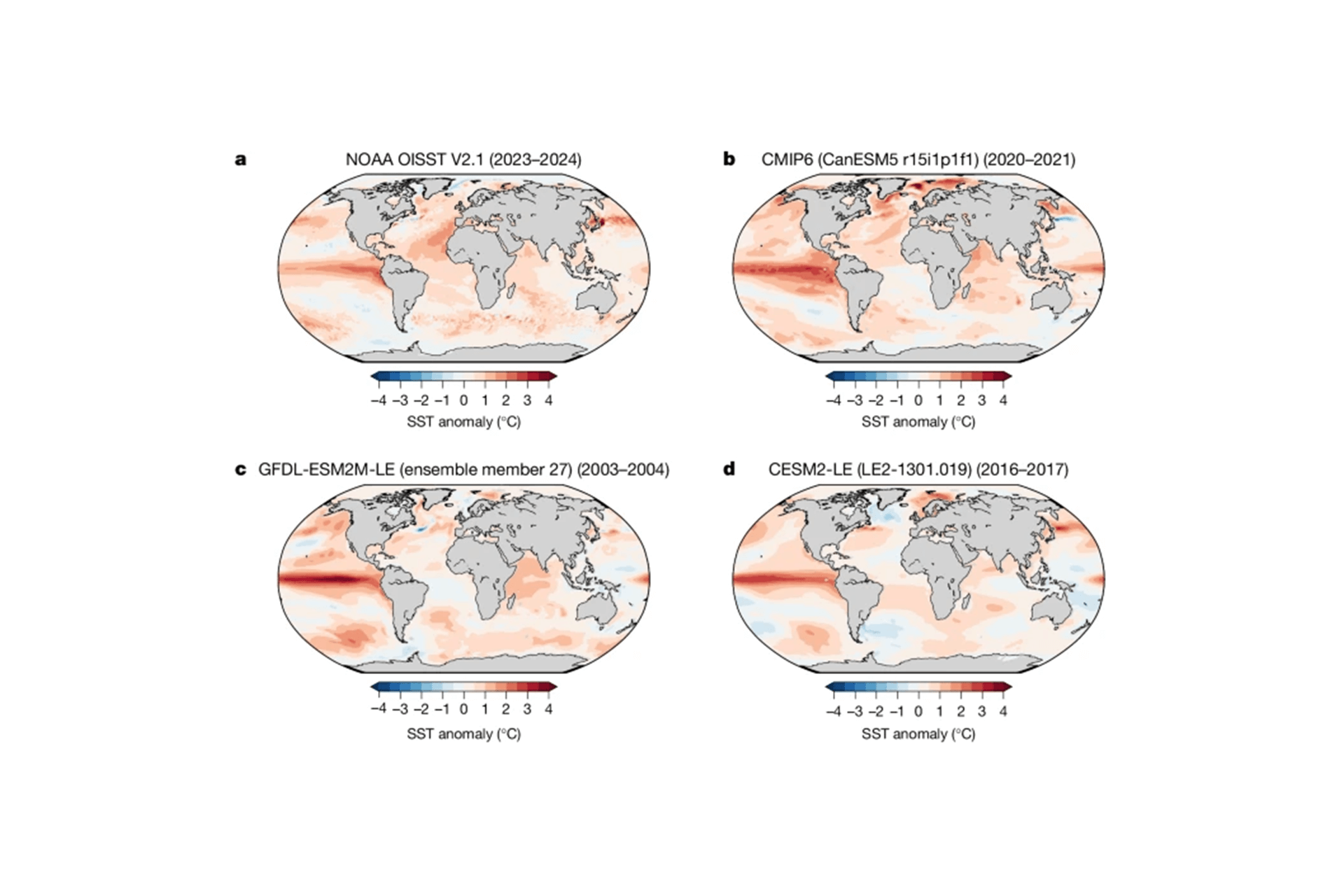Record sea surface temperature jump in 2023–2024 unlikely but not unexpected
- Publication

Abstract
Global ocean surface temperatures were at record levels for more than a year from April 2023 onwards, exceeding the previous record in 2015–2016 by 0.25 °C on average between April 2023 and March 20241. The nearly global extent and unprecedented intensity of this event prompted questions about how exceptional it was and whether climate models can represent such record-shattering jumps in surface ocean temperatures2. Here we construct observation-based synthetic time series to show that a jump in global sea surface temperatures that breaks the previous record by at least 0.25 °C is a 1-in-512-year event under the current long-term warming trend (1-in-205-year to 1-in-1,185-year event; 95% confidence interval). Without a global warming trend, such an event would have been practically impossible. Using 270 simulations from a wide range of fully coupled climate models, we show that these models successfully simulate such record-shattering jumps in global ocean surface temperatures, underpinning the models’ usefulness in understanding the characteristics, drivers and consequences of such events. These model simulations suggest that the record-shattering jump in surface ocean temperatures in 2023–2024 was an extreme event after which surface ocean temperatures are expected to revert to the expected long-term warming trend.
Read full Nature article here: https://doi.org/10.1038/s41586-025-08674-z